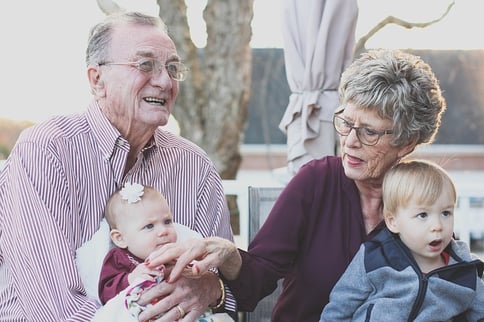Anyone with a loved one suffering from dementia knows that feeling of sadness that comes with a visit to a dementia care community. Yes, you know that this is where mom, dad, or granddad needs to live now, but still, you wish it wasn’t so. Imagine the feelings of a young one who is now going to have to visit their grandparent (or in the worst case, their parent) in such a community. They will undoubtedly struggle with a variety of emotions and may not understand why certain care procedures take place at the community. So let’s talk about how to explain dementia to your kids.
Talk about the move
No doubt, your children have watched with alarm as their grandma has begun to drift away and fails to remember their name or who they are. Obviously, you’ll have explained the disease. Now you must explain why she needs to move out of their home and into a specialized community. It’s probably a good idea to take your child on a tour with the administrator before the move so he or she can get information about their loved one’s new home. Ask the community administrator, or the person responsible for family coordination, to set up a special tour aimed at explaining dementia care to younger people.

Arm them with information
Kids today live on the computer, so point them to some reliable sites that explain about dementia care from a young person's perspective. For example, the Alzheimer’s association has a section on its website entitled “Talking to Kids and Teens.” For kids who are really struggling with these changes, there are camps and retreats designed just for teens with parents or grandparents who have Alzheimer’s.
Let them vent, then reassure
Teens are going through so many life change; this situation can pile on added stress and other emotions, including sadness, but maybe anger too. They may worry that the disease is contagious or that mom and dad are going to develop it, notes the Alzheimer’s Association, so get those concerns on the table and work to reassure your teen. Your child may also feel guilty about getting angry with grandma or being embarrassed to tell friends that her grandma lives in a place full of people that act differently. Again, talk it out and explain that such feelings are normal and will go away over time as the family adjusts to this “new normal.”
The bright side
Okay, maybe there are few bright sides with this sad and cruel disease; but you may find that this experience helps your teen develop greater empathy, compassion and maturity as he or she learns how to communicate. Staff at a good dementia care community will certainly be there to help and provide reassurance that these visits mean the world to the grandparent, even if it’s not always obvious.
Are you looking for some peace of mind after an Alzheimer's or dementia diagnosis?
The best dementia care programs have many programming, safety and accommodation components. Learn how we've combined these to bring the latest in dementia care programming to our communities. Contact us today to let us help you with your loved one's needs.

